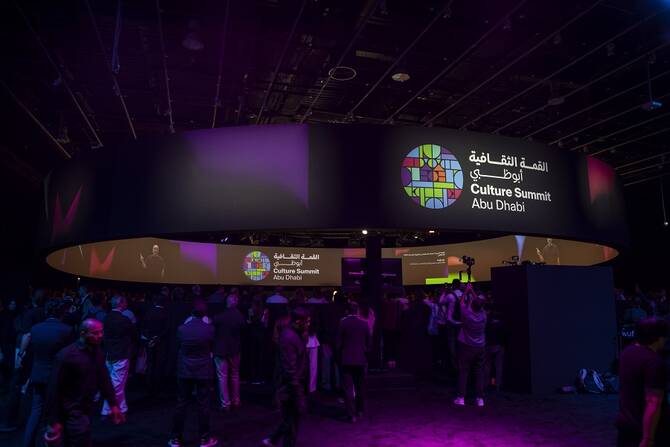ABU DHABI: World leaders discussed how culture can transform global challenges at the seventh edition of the Culture Summit Abu Dhabi.
The summit — which opened on Sunday in the heart of Abu Dhabi’s culture district at the Manarat Al-Saadiyat — is hosting a range of panels and discussions exploring the theme “Culture for Humanity and Beyond.”
One of the panels featured former world leaders discussing the role of culture within global governance.
Former Slovak Prime Minister Iveta Radicova set the tone at the “Bridging the Cultural Gap: The Role of Culture in Shaping Global Governance” panel, saying that “400 years ago, there were 800 million people on the planet. Today, it’s 8 billion, divided into 195 states and 6,000 different community groups with their own languages and cultures.”

The panel featured former world leaders discussing the role of culture within global governance. AN Photo
New Zealand’s former Prime Minister Jenny Shipley emphasized the importance of inclusive leadership, sharing her country’s successful model of integrating Maori cultural heritage into national governance.
She noted that leadership must be “intentional” about diversity. “I always start with the ‘I’,” she explained, “because if you’re not a committed, inclusive leader, you will not get to the destination of equity.”
Former President of Mauritius Cassam Uteem illustrated how cultural diplomacy works in practice, sharing how his small island nation has played a major role in international cultural politics. He highlighted Mauritius’ participation in UNESCO, bringing perspectives of small, developing island states into global discussions.
The panelists unanimously agreed that traditional international institutions are ill-equipped to handle today’s complex cultural landscape. They called for more innovative approaches that place culture at the center of global governance, rather than treating it as a peripheral concern.
“Culture is the mirror of human existence and the producer of new dreams, and without dreams, we lose our human dignity,” said Radicova.
A recurring theme was the need to combat misinformation and protect cultural authenticity in an era of tech moguls ruling the roost and advancements in artificial intelligence.
“If you would like to build social cohesion and solidarity around the world, you have to fight for the truth, and openly, without dancing around, with courage and really verified arguments,” said Radicova.












